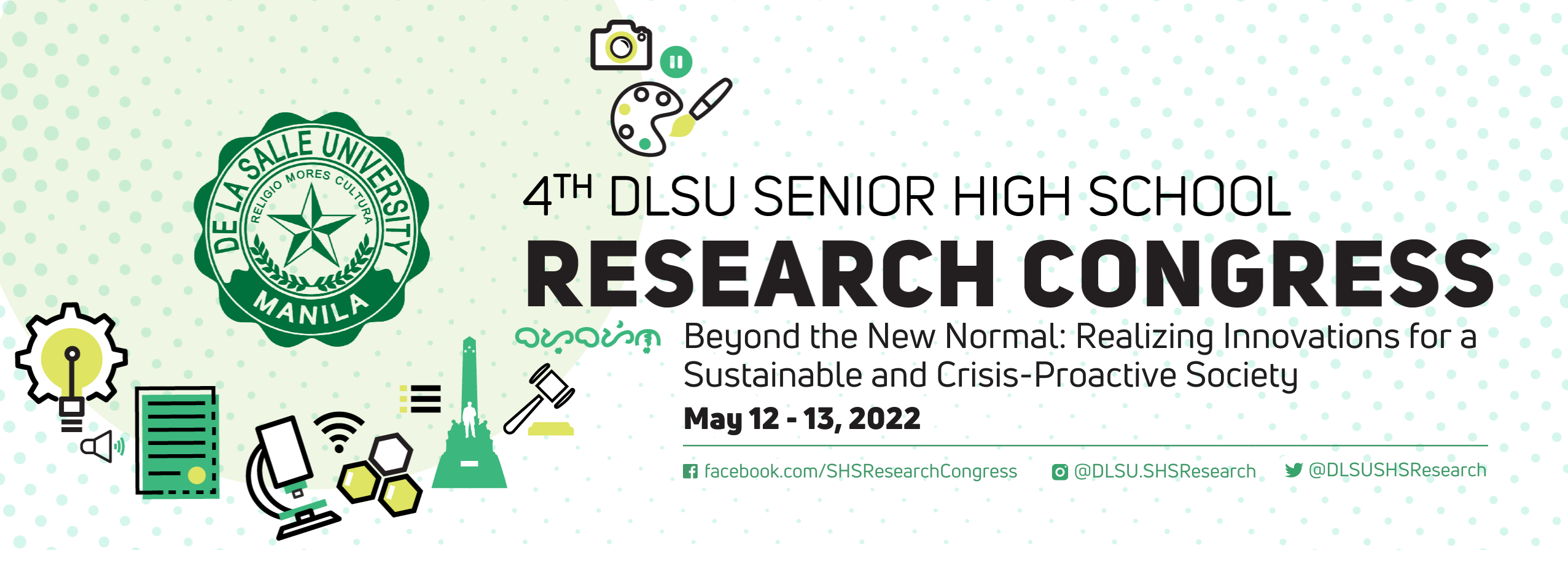Document Types
Paper Presentation
Research Theme (for Paper Presentation and Poster Presentation submissions only)
Sustainability, Environment, and Energy (SEE)
Research Advisor (Last Name, First Name, Middle Initial)
Richard Deanne C. Sagun
Start Date
12-5-2022 1:00 PM
End Date
12-5-2022 3:00 PM
Abstract/Executive Summary
The sustainability trend in the market requires businesses to change their usual models and mechanisms of producing goods to cater to consumer preferences. These preferences mainly revolve around the product's brand, price, and accessibility, impacting consumers' choices, priorities, and decisions (Gutierrez & Seva, 2016; Rappler, 2013; Longo et al., 2019). This study investigated more in-depth factors affecting an individual's purchase and non-purchase of sustainable personal hygiene products in the market: bamboo toothbrushes and shampoo bars. For the grounded theory inquiry, participants ages 16-20 from the National Capital Region of the Philippines were recruited. Semi-structured interviews were conducted asking about their product preferences considering the initial categories: general questions, knowledge, price, effectiveness, culture, tradition, brand, social influence, availability, and other miscellaneous questions. All 12 participants' interviews contributed to summarizing the study's codes and categories. For the secondary analysis, the thematic analysis revealed two overarching themes characterizing the elements impacting one's purchase and non-purchase of sustainable personal hygiene products: (1) barriers to accessing sustainable products; and (2) factors influencing an individual's purchasing consideration of personal hygiene products. Enterprises might find it helpful to explore these themes to create business models best tailored to the market.
Keywords
sustainability; consumers’ choices and decisions; personal hygiene products; NCR; ages 16 to 20
Included in
Preferences of Filipino Consumers on Personal Hygiene Products: An Inside Look on Traditional and Sustainable Options
The sustainability trend in the market requires businesses to change their usual models and mechanisms of producing goods to cater to consumer preferences. These preferences mainly revolve around the product's brand, price, and accessibility, impacting consumers' choices, priorities, and decisions (Gutierrez & Seva, 2016; Rappler, 2013; Longo et al., 2019). This study investigated more in-depth factors affecting an individual's purchase and non-purchase of sustainable personal hygiene products in the market: bamboo toothbrushes and shampoo bars. For the grounded theory inquiry, participants ages 16-20 from the National Capital Region of the Philippines were recruited. Semi-structured interviews were conducted asking about their product preferences considering the initial categories: general questions, knowledge, price, effectiveness, culture, tradition, brand, social influence, availability, and other miscellaneous questions. All 12 participants' interviews contributed to summarizing the study's codes and categories. For the secondary analysis, the thematic analysis revealed two overarching themes characterizing the elements impacting one's purchase and non-purchase of sustainable personal hygiene products: (1) barriers to accessing sustainable products; and (2) factors influencing an individual's purchasing consideration of personal hygiene products. Enterprises might find it helpful to explore these themes to create business models best tailored to the market.


